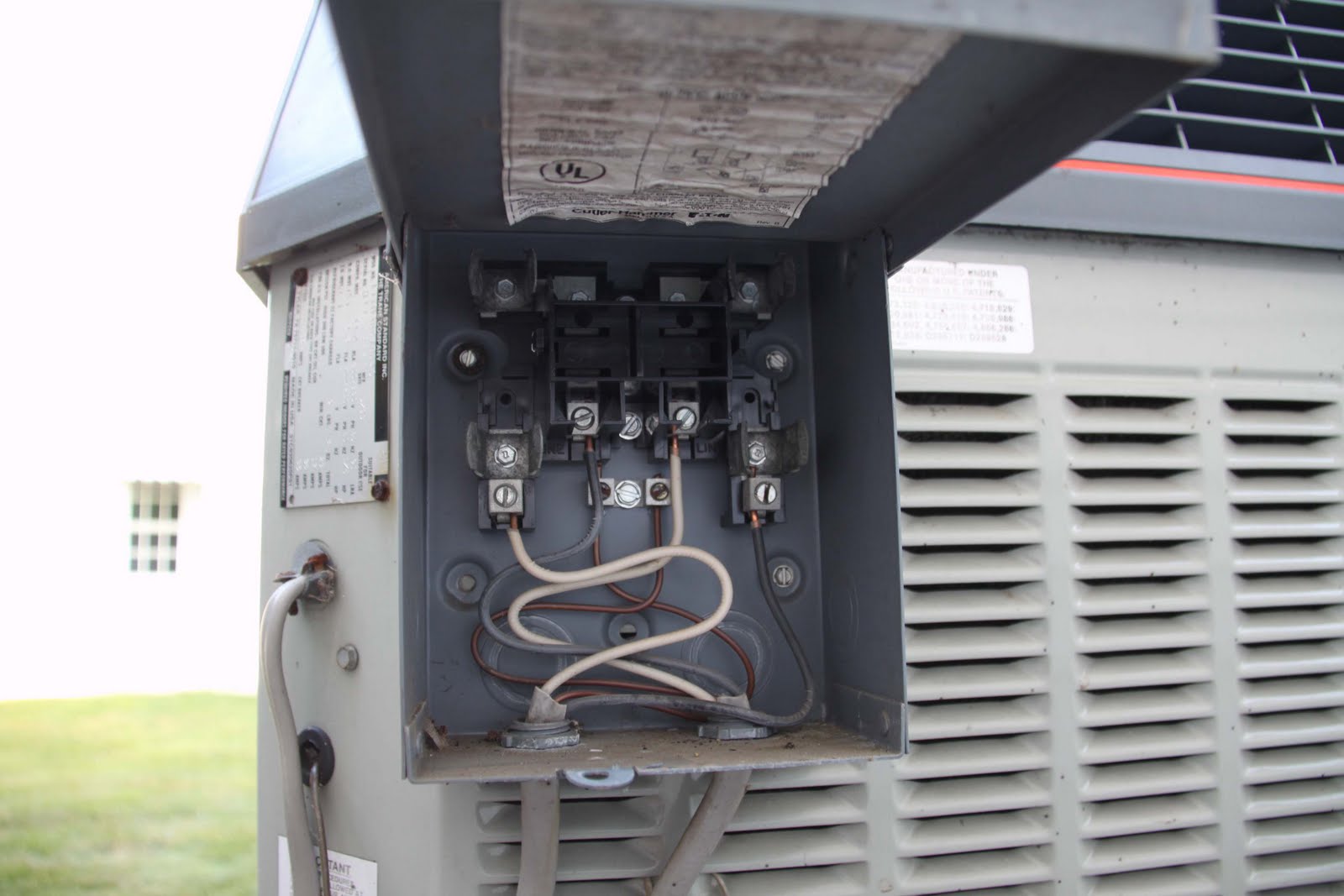The fuse in your air conditioning (AC) unit plays a pivotal role in ensuring that your system operates safely. If your AC unit fails to start or if it’s not cooling effectively, the fuse might be the culprit. But, where exactly is this essential component located and how can you determine if it’s functioning correctly?
Understanding Your AC Unit: Locating and Replacing the Fuse
Modern AC units come equipped with various safety devices to ensure their proper operation without posing a threat to your home’s electrical infrastructure. One of these integral safety components is the fuse. Fuses are usually located within the disconnect box, which is generally positioned on the exterior wall, close to your outdoor AC unit.
When facing issues with your AC, the first thing you’d likely check is the circuit breaker in your home. But if that seems fine, the next thing on your checklist should be the fuse in the disconnect box.
AC Troubleshooting: How to Identify if the Fuse is the Culprit
Before diving in to replace the fuse, it’s crucial to diagnose if it’s the real issue. A study from the Department of Energy emphasizes the importance of regular maintenance and timely problem identification for the efficient functioning of AC units. Symptoms of a blown fuse include:
- The outdoor unit doesn’t turn on.
- The unit turns on but doesn’t cool.
- The system abruptly shuts down after starting.
For a precise diagnosis, using a multimeter set to the continuity setting is a safe way to check if the fuse is working correctly. If the meter shows no reading, it indicates the fuse is blown and needs replacement.
The Role of the Fuse in Your AC Unit: Why It’s Crucial for Safety
Fuses act as protectors. When there’s an overcurrent event, such as a power surge, the fuse sacrifices itself to ensure the rest of the system remains intact. As per research from the Electrical Safety Foundation International, overcurrent events can lead to significant electrical accidents if not countered promptly, highlighting the significance of a properly functioning fuse.
Common Reasons Your AC Fuse Blows: And How to Prevent It
So why does a fuse blow? Understanding the causes can help prevent frequent fuse replacements:
- AC System Overworking: Clogged filters or obstructed condenser coils can make the AC unit work harder, drawing more power.
- Capacitor Issues: The capacitor stores and releases energy. A malfunctioning capacitor can cause a power surge, blowing the fuse.
- Loose Electrical Connections: Over time, connections within the AC unit can become loose, resulting in shorts.
Ensuring regular maintenance checks, as outlined by the North American Technician Excellence (NATE), can help mitigate these risks.
Fuse Gone Bad? How to Safely Replace the Fuse in Your AC Unit
Safety first! Before attempting to replace the fuse, ensure the power to the AC unit is turned off. Once that’s done, follow these steps:
- Locate the Disconnect Box: This is typically a metal box mounted on the home’s exterior near the outdoor unit.
- Open the Box: You’ll find a handle that pulls out, revealing the fuses.
- Extract the Fuses: Using fuse pullers or needle-nose pliers, carefully extract the fuses.
- Test with a Multimeter: As mentioned earlier, a multimeter can help identify a blown fuse.
- Replace if Necessary: If a fuse is blown, replace it with one of the same rating.
It’s always recommended to refer to the manufacturer’s guide or consult professionals when uncertain.
Conclusion
A blown fuse can often be the silent culprit behind AC malfunctions. Regular checks and understanding the location and role of the fuse can save homeowners both time and money. Always prioritize safety and consider professional help when in doubt.
FAQs
1. How often should I check the fuse in my AC unit?
While there isn’t a strict timeline for checking the fuse, it’s a good idea to inspect it at the beginning of the warm season or whenever you experience AC malfunctions. Regular maintenance checks, ideally once a year, will also often catch issues with fuses before they result in system failure.
2. Can I replace the fuse in my AC unit by myself?
Yes, you can replace the fuse by yourself by following safety precautions and the steps outlined in the blog post. However, if you’re uncertain or uncomfortable with the process, it’s always recommended to seek assistance from a professional HVAC technician.
3. Why does my AC unit’s fuse keep blowing repeatedly?
If your fuse keeps blowing, it’s indicative of a deeper issue within the AC system. Common causes include an overworking AC system, capacitor issues, or loose electrical connections. Continuously replacing the fuse without addressing the root problem can result in more significant damage.
Zeeshan is a seasoned tech expert and senior writer at Teckrr.com. With over 10 years of experience in tech journalism, he brings insightful analysis and up-to-date information on the latest tech trends. Zeeshan holds a MBA degree from Business and Tech University and is known for his engaging writing style and ability to demystify complex tech topics. Stay connected with the cutting-edge of technology through his expert lens.

Leave a Reply